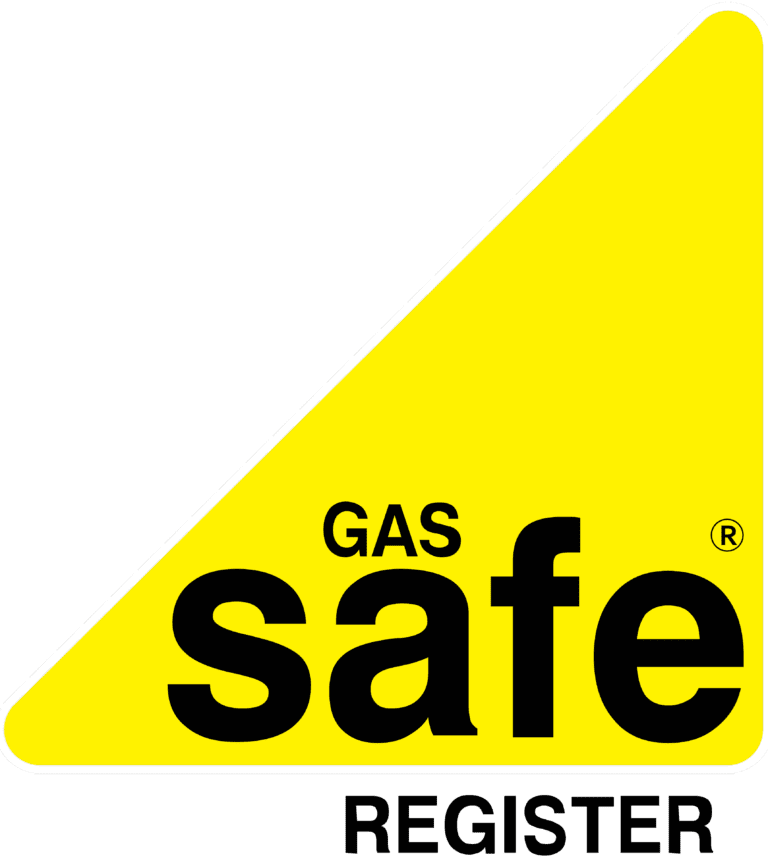Table of Contents
Installing a new boiler can significantly improve the efficiency and reliability of your home’s heating system. Whether you’re replacing your existing boiler or installing a brand new one, ensuring a smooth and successful installation process is crucial. This comprehensive guide will walk you through the necessary steps and considerations, helping you make informed decisions and providing peace of mind as you embark on this important home improvement project.
What Should You Include in Your Boiler Installation Checklist?
Why is a Boiler Installation Checklist Important?
A boiler installation checklist serves as an essential tool in ensuring that every aspect of your new boiler installation is addressed. It provides a structured approach to the installation process, highlighting all the critical components and steps that need to be covered. By utilising a checklist, you can prevent common issues that may arise during the installation, safeguard the integrity of your new boiler, and ensure that the installation adheres to safety standards and regulations. This systematic approach is invaluable in providing peace of mind and ensuring that no detail is overlooked.
What Items Should Be on Your Boiler Installation Checklist?
Your boiler installation checklist should include several key components. First, ensure that the installer is a gas safe registered engineer, as this certification guarantees the necessary expertise and compliance with safety standards. Consider the type of boiler you need, whether it’s a combi boiler, system boiler, or a regular boiler, and verify that the chosen model meets your household’s heating and hot water requirements. Additionally, check that all necessary components, such as the boiler flue and gas pipe, are installed correctly. Verify that the boiler pressure is set appropriately and that any necessary inhibitor is used to protect your central heating system from sludge.
How Can a Checklist Streamline the Installation Process?
A checklist not only ensures all necessary steps are completed but also streamlines the entire installation process by providing a clear sequence of tasks. This organised approach helps avoid delays and confusion, ensuring that the installation is completed efficiently and correctly. It allows the installer to systematically address each aspect of the project, from assessing the existing heating system to conducting post-installation checks. Furthermore, it provides the homeowner with a transparent overview of the work being conducted, enhancing communication between the installer and the customer.
How to Ensure Your New Boiler is Installed Correctly
What Happens During a Boiler Installation?
During a boiler installation, several key steps are involved to ensure the new boiler is installed correctly and functions efficiently. Initially, the heating engineer will assess your existing system and determine the appropriate installation plan. This includes removing the old boiler, preparing the site for the new one, and installing necessary components such as the boiler flue and gas pipe. The installer will then connect the new boiler to the central heating system, ensuring all connections are secure and testing the system for leaks. Finally, the heating engineer will conduct a thorough test of the new boiler to confirm it operates safely and efficiently, providing heating and hot water throughout your home.
How to Select a Qualified Installer?
Selecting a qualified installer is crucial to ensure your new boiler is installed safely and efficiently. Always choose an installer who is gas safe registered, as this certification indicates that they have the necessary training and qualifications to work with gas appliances. You can verify an installer’s credentials by checking their gas safe certificate, which should be presented upon request. Additionally, consider seeking recommendations from friends or family, and read reviews to gauge the installer’s reputation. A qualified installer will provide a comprehensive boiler service, ensuring your boiler is installed to the highest standards.
What Are the Common Mistakes to Avoid During Installation?
There are several common mistakes to avoid during boiler installation. One major error is failing to properly size the new boiler for your home, which can lead to inefficiency and increased energy bills. Ensuring the correct boiler types are selected based on the property’s requirements is essential. Another common mistake is neglecting to install necessary components like the inhibitor, which can lead to sludge buildup in the heating system. Additionally, not verifying the installer’s gas safe registration can compromise the safety and legality of the installation. Avoiding these mistakes will help ensure a successful and efficient boiler installation.
What Are the Costs Associated with Installing a New Boiler?
How Much Does a New Boiler Cost?
The cost of a new boiler can vary significantly depending on several factors, including the brand, type of boiler, and installation complexity. For instance, brands like Worcester Bosch may have a higher initial cost due to their reputation for quality and reliability. On average, the cost of the boiler itself can range from a few hundred to several thousand dollars. It’s important to consider both the upfront cost and the long-term savings from an energy-efficient model, which may reduce heating bills over time.
What Factors Affect the Cost of Boiler Installation?
Several factors can influence the overall cost of boiler installation. The complexity of the installation, such as the need for new pipework or relocating the boiler, can increase labor costs. Additionally, the type of boiler chosen can affect the cost; for example, a combi boiler might be more economical for smaller homes, whereas a system boiler could be more suitable for larger properties with high hot water demands. The inclusion of additional services, such as extended warranties or boiler cover, can also add to the total cost.
Are There Any Hidden Costs in Boiler Installation?
While planning for a new boiler installation, it’s crucial to be aware of potential hidden costs. These might include the need for additional components, such as a new flue or gas pipe, which may not be included in the initial quote. Additionally, if the installation requires modifications to the central heating system or the removal of old radiators, these can incur extra charges. It’s advisable to discuss all potential costs with your installer upfront to avoid surprises and budget accordingly.
How to Choose the Right Type of Boiler for Your Home
What Are the Different Types of Boilers?
Understanding the different types of boilers is essential when selecting the right one for your home. The main types include combi boilers, system boilers, and regular boilers. Combi boilers are compact and provide both heating and hot water on demand, making them ideal for smaller homes with limited space. System boilers, on the other hand, require a separate hot water cylinder and are suitable for larger homes with higher hot water needs. Regular boilers, also known as conventional boilers, are best for homes with an existing traditional heating system and separate hot water storage.
How to Decide Between a Combi Boiler and a Traditional Boiler?
Deciding between a combi boiler and a traditional boiler involves considering your home’s specific heating and hot water requirements. Combi boilers are often favored for their space-saving design and efficiency, as they eliminate the need for separate water tanks or cylinders. However, if your home has multiple bathrooms or a high simultaneous demand for hot water, a system or regular boiler might be more appropriate. These boilers can handle larger volumes of water and maintain consistent pressure, making them suitable for larger households.
What Role Does Energy Efficiency Play in Choosing a Boiler?
Energy efficiency is a crucial factor when choosing a new boiler, as it directly impacts your energy bills and environmental footprint. Modern boilers, especially those with high efficiency ratings, can significantly reduce energy consumption and lower heating costs. Look for boilers with an A-rating for efficiency, and consider models that incorporate advanced technologies, such as modulating burners or weather compensation, which further enhance efficiency. An energy-efficient boiler not only provides cost savings but also contributes to reducing carbon emissions, aligning with broader sustainability goals.
What to Expect from Your Boiler Installation Service?
What Should a Professional Boiler Installation Service Include?
A professional boiler installation service should encompass a comprehensive range of tasks to ensure the successful setup and operation of your new boiler. This includes a thorough assessment of your home’s heating needs, expert advice on selecting the appropriate boiler type, and a detailed installation plan. The service should involve the safe and efficient installation of the boiler and all associated components, such as the flue and gas pipe. A reputable service will also include rigorous testing of the system to confirm its performance and safety, and provide guidance on operating and maintaining your new boiler.
How to Verify if the Installation is Done by a Gas Safe Registered Engineer?
Verifying the credentials of your installer is crucial for safety and compliance. A gas safe registered engineer will carry a gas safe certificate, which you can request to see before installation begins. Additionally, you can check the gas safe register, a national database, to confirm the engineer’s registration and qualifications. Ensuring that your boiler installation is conducted by a certified professional protects you from potential safety hazards and ensures that the installation meets all legal requirements.
What Are the Post-Installation Checks?
Post-installation checks are essential to confirm that your new boiler has been installed correctly and is functioning as expected. These checks typically involve testing the boiler’s performance, verifying that the boiler pressure is set correctly, and ensuring that there are no leaks in the system. The installer should also provide a demonstration of the boiler’s operation and offer advice on maintaining the system, including scheduling regular boiler services. These post-installation checks provide assurance that your new boiler will operate efficiently and safely, offering long-term reliability and comfort.
Before getting your new boiler installed, consider the type and size of the boiler suitable for your home, the brand and model, and whether you need a new boiler or a replacement boiler. It’s also important to ensure that the boiler installation meets safety regulations and includes a professional installation with a Gas Safe engineer.
To choose the right boiler, consider your heating and hot water needs, the size of your home, and whether you prefer a heat pump or a traditional gas boiler. Consulting a boiler installation guide can help you compare options and ensure you select the best brand and model for your situation.
A plume kit is an accessory used to redirect the flue gas emissions from the boiler, preventing them from obstructing windows or neighbouring properties. You may need a plume kit if your property layout requires it to comply with safety and environmental regulations.
Ensure your boiler installation meets safety standards by hiring a Gas Safe registered engineer for the installation. It is crucial to have a benchmark checklist completed, which verifies that all safety checks and standards have been met during the installation process.
A boiler filter helps protect your brand new boiler from sludge and debris buildup in the system, enhancing efficiency and prolonging the life of the boiler. It also reduces the likelihood of a boiler breakdown and the need for a repair.
If your boiler is likely experiencing frequent breakdowns or if you often need a repair, it may be time to consider replacing your boiler. A new boiler can offer more reliability, efficiency, and better control over your heating system.
It is recommended to schedule servicing and maintenance for your boiler annually. Regular maintenance helps ensure the safety and efficiency of your boiler, prolongs its lifespan, and can prevent unexpected breakdowns.
If you need a repair for your boiler, contact a qualified Gas Safe engineer to assess and fix the issue. Prompt attention to repairs can prevent further damage and maintain the efficiency of your heating system.
The gas meter measures the amount of gas used by your boiler for heating. It is important for monitoring energy consumption and ensuring accurate billing. During a boiler installation, the gas meter should be checked to ensure it is functioning properly and safely connected to the new system.

